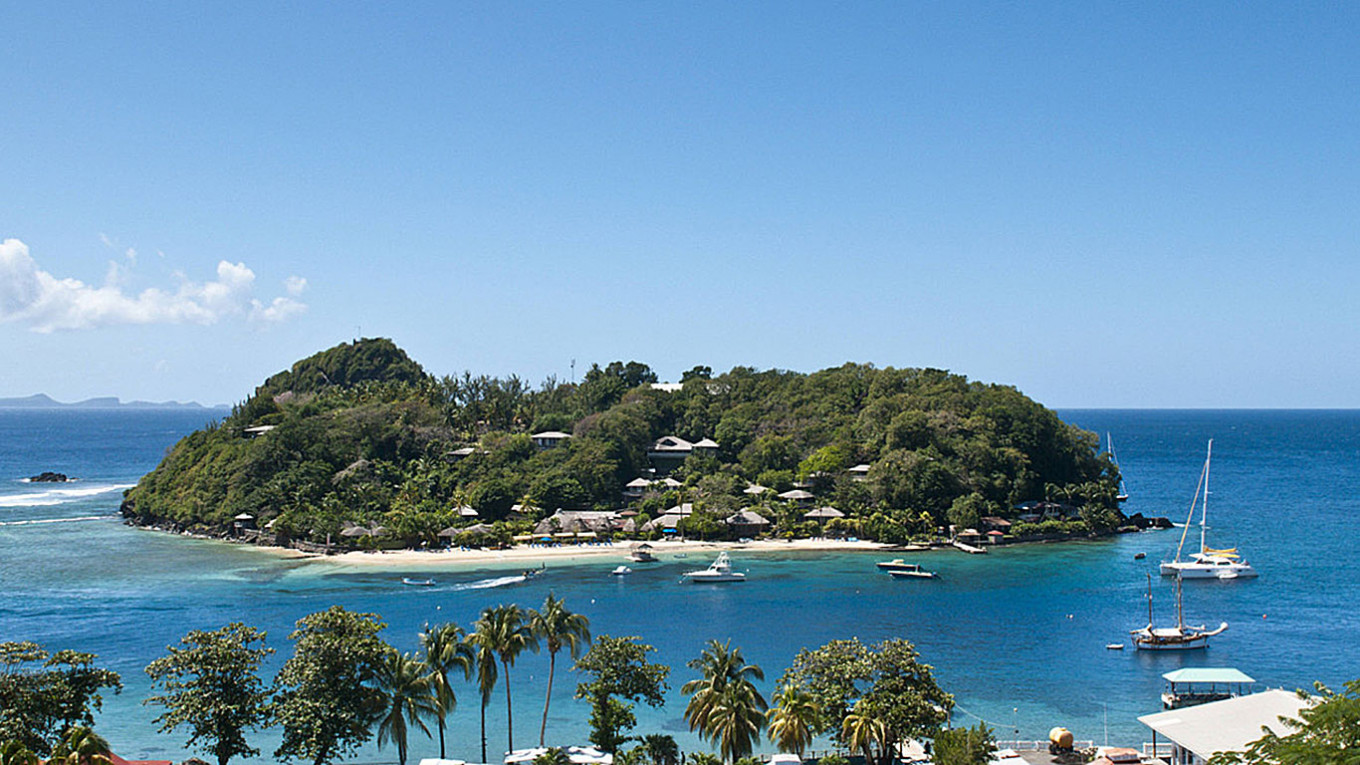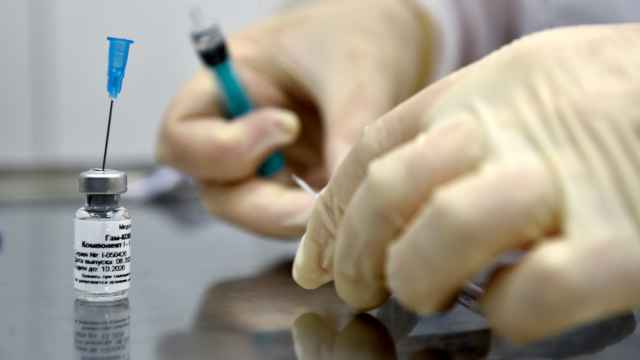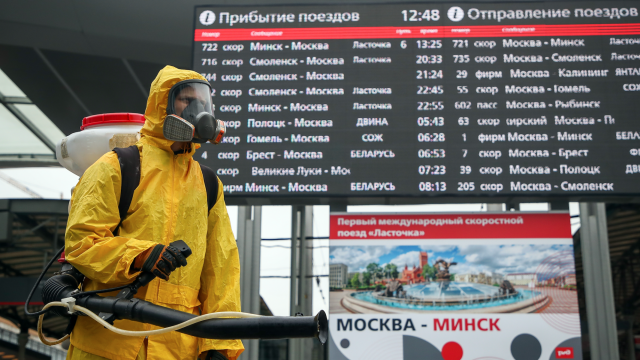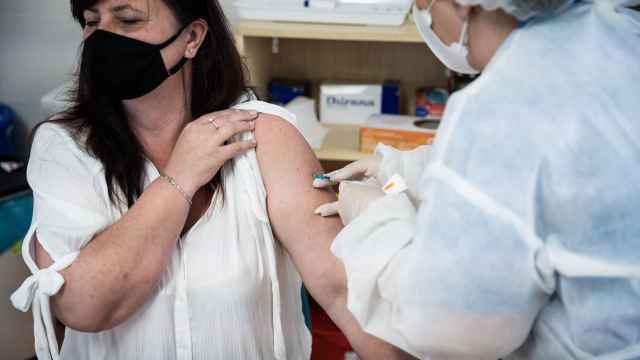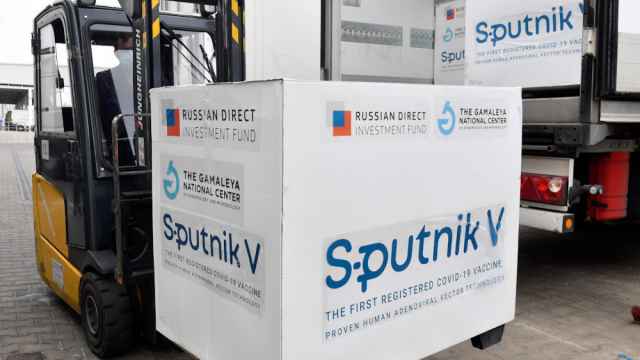On May 19, a small military plane carrying 16,000 doses of AstraZeneca coronavirus vaccines took off from St. Vincent and the Grenadines, a Caribbean nation of lush tropical islands famous for the mix of super yachts and fishing boats that bob around its waters.
The vaccines, donated through the World Health Organization’s Covax vaccine-sharing facility, would have been enough to deliver a first dose to 20% of the country’s adult population. But with expiry dates approaching and not enough locals volunteering to be inoculated, Prime Minister Ralph Gonsalves decided to send them to neighboring Trinidad and Tobago, rather than let them go to waste.
Now, facing a hesitant population frightened by what he calls the “infodemic” around the coronavirus, Gonsalves is betting on Russia’s Sputnik V vaccine to succeed where AstraZeneca failed and boost vaccination rates across the islands.
“A number of people don’t want to take AstraZeneca because of all the stuff coming out of Europe. The stories about blood clots, all the ups and downs in France and Germany, restrictions for people over a certain age,” he told The Moscow Times over a video call from his office in Kingstown, the capital of the island nation.
“That made some people timid, they were saying they were waiting for another vaccine. Some people said they were waiting for Sputnik V.”
Five different vaccines have been approved for use in St. Vincent and the Grenadines — AstraZeneca, Johnson & Johnson, Pfizer and Moderna, along with Russia’s Sputnik V.
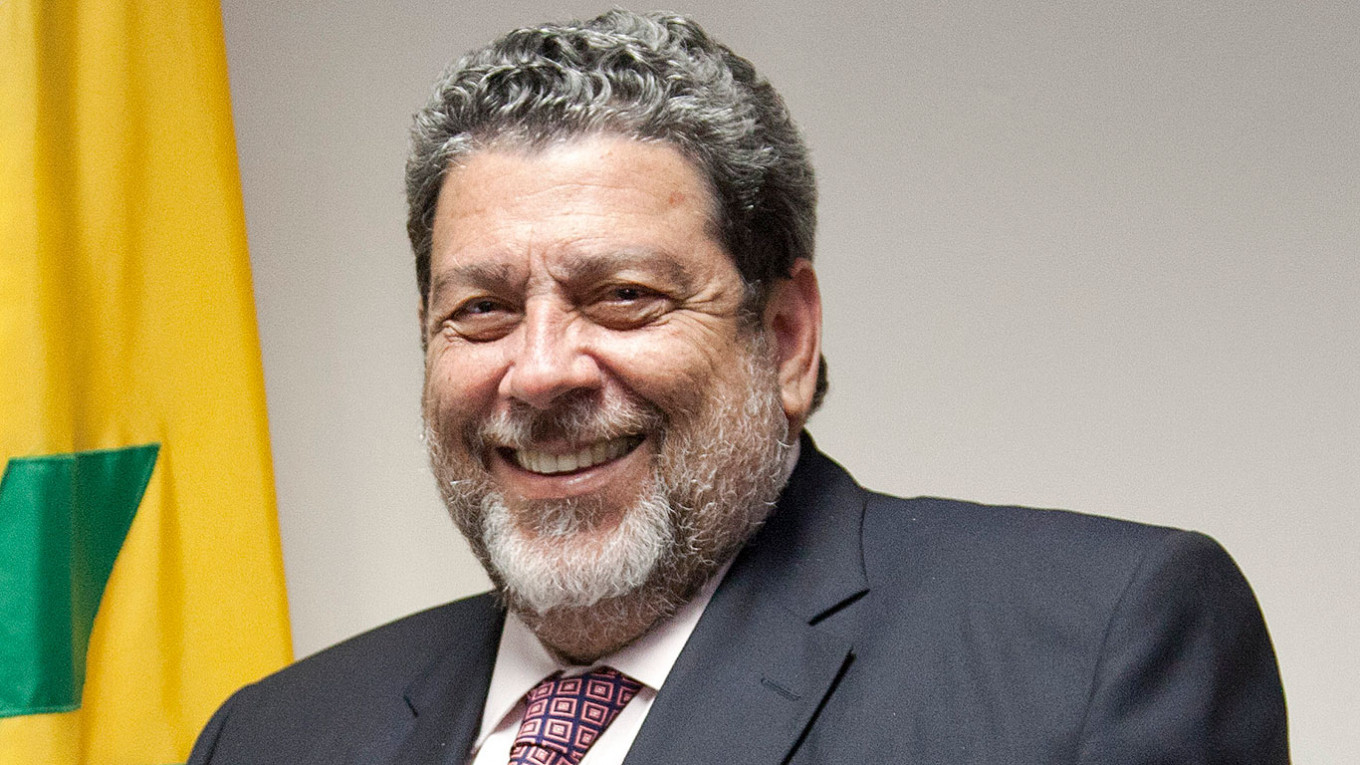
In the case of the Russian vaccine, the publication of clinical trial data in leading medical journal The Lancet was the most important factor in securing the jab’s approval, he said.
Part of the reason Sputnik V has become the vaccine of choice among citizens of St. Vincent and the Grenadines was Gonsalves’ decision to vaccinate himself and senior medical workers with it at the start of the vaccination campaign, after the country was given 1,000 doses from an unnamed “private donor.”
“I suspect some people took it because Ralph took it,” he said, referring to himself, noting that people were specifically calling for the government to start offering the Russian vaccine.
“It’s also felt that it’s a more effective vaccine than some others which are available,” he added.
In a bid to meet that perceived demand, Gonsalves recently ordered 100,000 doses of the Russian vaccine — enough to fully vaccinate 50,000 people with Sputnik V’s two-shot formula.
If his plan works, it would put the Caribbean nation above Gonsalves’ target for a 70% adult inoculation rate.
Vaccine diplomacy boost
A successful rollout could also give a much-needed boost to Russia’s flagging vaccine diplomacy campaign.
More than a dozen countries that bought Sputnik V have been plunged into domestic political scandals over the use of the vaccine, or faced lengthy delays to delivery of the vital second dose. Unlike other two-dose vaccines, Sputnik V consists of two different shots, which according to national authorizations and Russia’s official guidance, must be administered 21 days apart.
Within the last week, Brazil and Guatemala have cancelled or amended their contracts for the vaccine. In Argentina, a linchpin of Russia’s vaccine export drive, leaked emails revealed the government had warned Russia it was facing a “critical situation” if Moscow continued to fall short of its delivery promises. In Ghana, the Health Minister is facing calls to resign and a parliamentary inquiry after buying vaccines at double Russia’s advertised factory price through an intermediary.
St. Vincent and the Grenadines’ first shipment of 50,000 Sputnik V doses — all the first shot — has already arrived, and second doses are set to be delivered in August.
“I need to get the 50,000 second components. But if I have that, it will take me significantly over the hurdle towards population immunity,” Gonsalves said.
He is not concerned about possible delivery delays, and says his small order size should ensure Russia can come up with the goods. The $1 million contract is off to a good start, he says, with Russia delivering the first batch before any money had been sent. St. Vincent and the Grenadines also negotiated directly with Russia — despite Moscow having struck a vague agreement earlier this year for Grenada to be the official distributor of Sputnik V vaccines in the Caribbean — and is paying the factory price of $9.95 per component.
Other countries, including nearby Guyana, said they were forced to pay more than twice that to a United Arab Emirates-based intermediary for Sputnik V vaccines after Russian authorities refused to deal with them directly.
The new shipment of Sputnik V vaccines expires in October. Gonsalves says he is “hopeful” he will be able to use them before then. The country still has a stock of AstraZeneca jabs, but he is already planning a third donation to a larger Caribbean country ahead of their expiry in August.
So far the country of 110,000 people has administered around 25,000 doses in total — leaving only 11% of the country fully vaccinated.
Despite the low vaccination rate and Gonsalves’ rejection of a harsh lockdown or border closures, St. Vincent and the Grenadines has reported fewer than 2,300 infections since the start of the pandemic and just 12 official deaths.
But he says the financial impact has been “terrible,” with the largely agricultural economy contracting by around 5% last year and a volcanic eruption in April further upsetting the country’s path to recovery.
As larger countries around the world start to back away from Sputnik V, and the jab continues to face obstacles — ranging from data delays to manufacturing infringements — on the path to winning WHO or European Medicines Agency (EMA) approval, a successful roll-out in St. Vincent and the Grenadines could also provide a boost for Russia. The rollout of Sputnik V in another of the world’s smallest countries, San Marino, provided significant material for the vaccine’s international marketing drive earlier in the year.
But whether Gonsalves’ bet on Sputnik V will pay off remains to be seen. The prime minister says he is confident Russia will honor the contract to deliver vaccines — convincing enough Vincentians to take it is another issue.
“I can’t be sure yet, because there is still significant vaccine hesitancy,” he said.
“But day by day, more and more people are seeing that you need to take the vaccine for your health, your family’s health, for the economy to pick up and for your jobs.”
The country has not reported an official tally of how many doses it has administered since the new Sputnik V drive kicked off.
“Of course, you’ll always have recalcitrants — that’s the nature of life and living.”
A Message from The Moscow Times:
Dear readers,
We are facing unprecedented challenges. Russia's Prosecutor General's Office has designated The Moscow Times as an "undesirable" organization, criminalizing our work and putting our staff at risk of prosecution. This follows our earlier unjust labeling as a "foreign agent."
These actions are direct attempts to silence independent journalism in Russia. The authorities claim our work "discredits the decisions of the Russian leadership." We see things differently: we strive to provide accurate, unbiased reporting on Russia.
We, the journalists of The Moscow Times, refuse to be silenced. But to continue our work, we need your help.
Your support, no matter how small, makes a world of difference. If you can, please support us monthly starting from just $2. It's quick to set up, and every contribution makes a significant impact.
By supporting The Moscow Times, you're defending open, independent journalism in the face of repression. Thank you for standing with us.
Remind me later.



